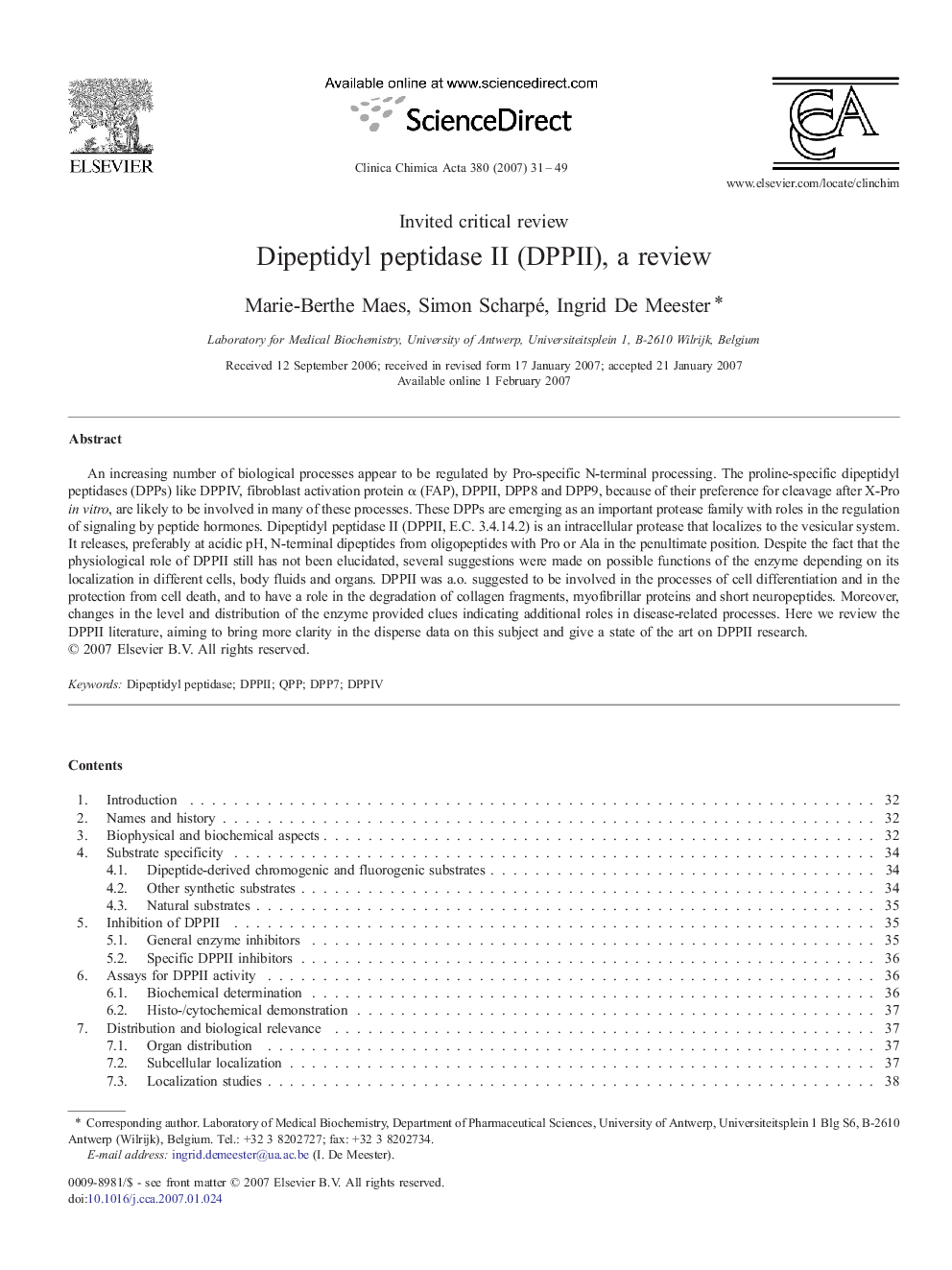| Article ID | Journal | Published Year | Pages | File Type |
|---|---|---|---|---|
| 1967451 | Clinica Chimica Acta | 2007 | 19 Pages |
An increasing number of biological processes appear to be regulated by Pro-specific N-terminal processing. The proline-specific dipeptidyl peptidases (DPPs) like DPPIV, fibroblast activation protein α (FAP), DPPII, DPP8 and DPP9, because of their preference for cleavage after X-Pro in vitro, are likely to be involved in many of these processes. These DPPs are emerging as an important protease family with roles in the regulation of signaling by peptide hormones. Dipeptidyl peptidase II (DPPII, E.C. 3.4.14.2) is an intracellular protease that localizes to the vesicular system. It releases, preferably at acidic pH, N-terminal dipeptides from oligopeptides with Pro or Ala in the penultimate position. Despite the fact that the physiological role of DPPII still has not been elucidated, several suggestions were made on possible functions of the enzyme depending on its localization in different cells, body fluids and organs. DPPII was a.o. suggested to be involved in the processes of cell differentiation and in the protection from cell death, and to have a role in the degradation of collagen fragments, myofibrillar proteins and short neuropeptides. Moreover, changes in the level and distribution of the enzyme provided clues indicating additional roles in disease-related processes. Here we review the DPPII literature, aiming to bring more clarity in the disperse data on this subject and give a state of the art on DPPII research.
